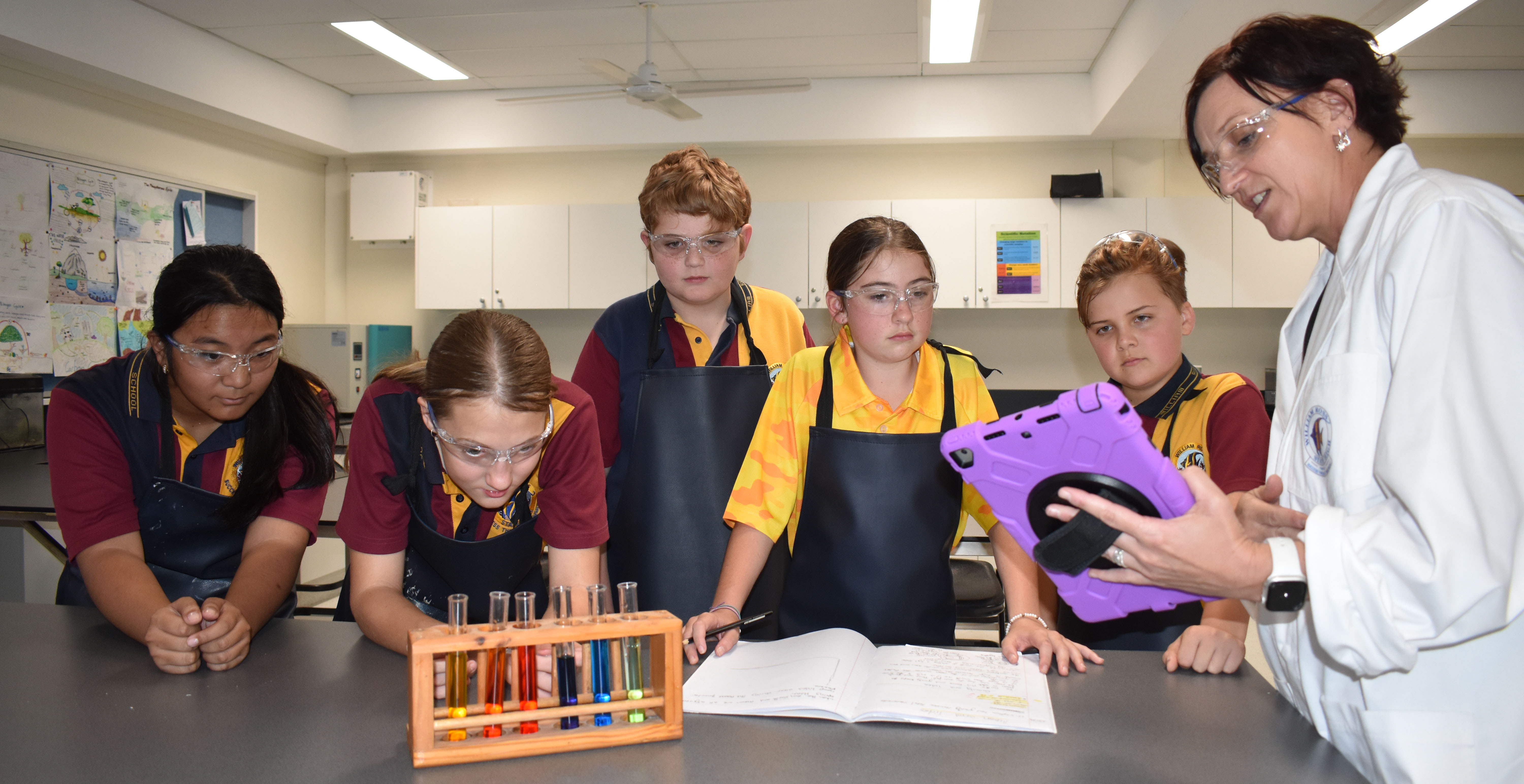 Junior Secondary Curriculum
Junior Secondary Curriculum
Junior Secondary curriculum
at William Ross State High School represents a sequence of carefully planned
and balanced learning experiences designed to meet the current and future needs
of students. It is grounded in student focused junior secondary philosophy and
practice, responsive to individual student needs, as well as being rich in
real-life significance. The curriculum is focused around a student’s active
investigation of the world. Through investigation, students will interpret,
interact and influence the world they live in. At the core of junior secondary
curriculum is the focus on literacy, numeracy and ICTs.
Junior Secondary students
study the Australian Curriculum for English, Mathematics, Science and
Humanities (History, Geography and Civics). Students also participate in
academic lessons in Health and Physical Education and the Languages (Japanese
or Chinese) as well as completing subjects from Technology and The Arts areas.
Year 7 provides the platform
for building the knowledge, skills, experience and understanding required for
the junior secondary phase of learning. It is during this phase the foundations
are laid to prepare students for tracking academic achievements throughout
Years 8 and 9. At the completion of Year 9, successful students will be awarded
the JCE (Junior Certificate of Education). This is a school-based certificate,
pioneered by William Ross State High School that recognises the completion of
the student’s junior phase of learning.
Student Progress and
Tracking (ACADEMIC Review Process)
Students will receive a
report on their progress 4 times a year. The report indicates the grade
achieved in each subject, as well as the student’s progress in relation to
behaviour and effort. Each student’s progress is monitored closely and
parents are contacted regularly by teachers and the Deputy Principal of Junior
Secondary so that they may be aware of the progress being made. Students
are also responsible for being both accountable and actively aware of their
progress and achievements throughout each school term. Students are
required to track their achievements in their school Learning Journal. If
individual students encounter difficulties with their learning, parents/carers
are contacted before the formal reporting period. Parents/carers are
welcome to contact the school at any time if they are concerned about their
child’s progress.
Leading Learner Excellence
Programs
‘Leading Learner’ Excellence
programs in Mathematics, English, Art, Engineering, Science and Humanities are
provided for academically advanced students in Years 7, 8, 9 and 10.
Ensuring a quality
transition from primary to a secondary environment is an integral aspect of
planning and operations at William Ross State High School. This is fostered by
working closely with primary feeder schools throughout the year.